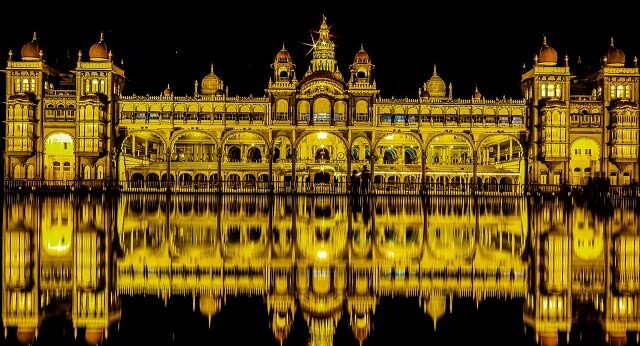Historical Sites Included in Turkey Tour Packages
Segv Turkey tour packages, a nation where ancient civilizations and empires left their indelible mark, is a paradise for history buffs. From awe-inspiring Greco-Roman ruins to majestic Ottoman architectural marvels, Turkey boasts a wealth of historical sites that captivate travelers worldwide. This comprehensive guide explores the treasure trove of historical sites typically included in Turkey tour packages, catering to the wanderlust of history enthusiasts.
A Journey Through Time: Popular Historical Inclusions
Turkey tour packages come in various itineraries, each focusing on specific regions or themes. However, some historical sites consistently find themselves included due to their significance and enduring appeal:
-
Istanbul: Nicknamed the “City of Two Continents,” Istanbul is a vibrant metropolis steeped in history. Tour packages typically include visits to iconic landmarks like:
- Hagia Sophia: This architectural marvel, originally a Byzantine cathedral, later a mosque, and now a museum, is a testament to the city’s rich religious and cultural heritage.
- Topkapi Palace: Immerse yourself in the grandeur of the Ottoman Empire by exploring the opulent Topkapi Palace, the former residence of sultans.
- Hippodrome: Step back in time at the Hippodrome, a former chariot racing stadium and center of Byzantine social and political life.
-
Ephesus: A UNESCO World Heritage Site, Ephesus is an ancient Greek city boasting remarkably well-preserved ruins. Explore the Library of Celsus, the Temple of Artemis (one of the Seven Wonders of the Ancient World), and the Great Theatre, offering a glimpse into the grandeur of this bygone era.
-
Cappadocia: Beyond its otherworldly geological formations, Cappadocia boasts a rich history evident in its unique cave dwellings. Explore underground cities like Kaymakli or Derinkuyu, networks of tunnels and chambers carved by early Christians seeking refuge. Witness the vibrant frescoes adorning the Goreme Open Air Museum, an ensemble of rock-cut churches and monasteries.
-
Pergamon: Another UNESCO World Heritage Site, Pergamon was a major center of learning and culture in the Hellenistic period. Marvel at the imposing Acropolis, explore the ruins of the Asclepion (a renowned ancient medical center), and admire the breathtaking views from the Red Basilica.
-
Pamukkale: Often referred to as “Cotton Castle,” Pamukkale is a natural wonder featuring travertine terraces cascading down a cliffside. These unique formations were created by mineral-rich thermal springs. Hierapolis, an ancient Greco-Roman city built on top of the terraces, offers further historical treasures to explore.
Beyond the Classics: Exploring Additional Historical Gems
While the above-mentioned sites are staples in many tours, Turkey offers a plethora of other historical gems that might be included depending on the itinerary:
- Troy: Delve into the legend of the Trojan War by visiting the ruins of Troy, an archaeological site believed to be the location of the epic battle.
- Aphrodisias: Dedicated to the Greek goddess of love, Aphrodite, Aphrodisias boasts a well-preserved temple complex, a theater, and a stadium, offering insights into Roman culture.
- Mount Nemrut: Ascend Mount Nemrut, a UNESCO World Heritage Site, and marvel at the colossal statues of ancient Armenian deities, offering a glimpse into a lesser-known historical period.
- Ani: An abandoned medieval Armenian city, Ani, is a UNESCO World Heritage Site. Explore its well-preserved churches, mosques, and city walls, remnants of a once-thriving civilization.
Choosing the Perfect Historical Tour: Factors to Consider
With such a vast array of historical sites, choosing the ideal tour package requires careful consideration:
- Interests: Are you fascinated by the Roman Empire, Byzantine history, or Ottoman rule? Choose a tour that focuses on your specific historical interests.
- Travel Style: Do you prefer fast-paced itineraries or tours with ample time to explore each site? Consider your preferred style of travel when making your choice.
- Region Focus: Turkey is geographically vast. Decide if you want a comprehensive overview or prefer to delve deeper into a specific region like Cappadocia or Ephesus.
- Tour Duration: Longer tours naturally allow for more historical inclusions compared to shorter itineraries.
History Beyond Borders: Exploring Tours in Neighboring Countries
Combine your Turkish adventure with historical exploration in neighboring countries:
- Greece: Sail across the Aegean Sea and delve into the rich history of Greece, the cradle of Western civilization.
- Armenia: Explore the ancient monasteries and historical sites of Armenia, a country with a long and fascinating history.
- Georgia: Discover the unique blend of European and Asian influences in Georgia’s historical landmarks and architectural
Conclusion: A Journey Through Millennia Awaits
Turkey beckons history buffs with its captivating historical sites, each whispering tales of empires, civilizations, and eras gone by. From the iconic landmarks of Istanbul to the hidden treasures scattered across the Anatolian landscape, Turkey offers a unique opportunity to walk through time. By considering the historical inclusions typically offered in tour packages, the additional historical gems waiting to be explored, and the factors influencing your choice, you can craft the perfect historical adventure in Turkey. So, pack your bags, choose your ideal tour, and embark on a journey through millennia, where every corner unveils a new chapter in humanity’s grand story.
Frequently Asked Questions
1. Is a visa required for Indian citizens traveling to Turkey?
Yes, Indian citizens require a visa to travel to Turkey. You can apply for an e-visa online before your trip or a visa on arrival at certain ports of entry. It’s advisable to check the latest visa requirements and application procedures with the Turkish embassy or consulate in India before finalizing your travel plans.
2. What is the local currency in Turkey?
The Turkish Lira (TRY) is the local currency in Turkey. While some tourist establishments might accept Euros or US Dollars, exchanging your currency to Turkish Lira is recommended for everyday transactions. ATMs are widely available in major cities and tourist areas.
3. What is the best time to visit Turkey for historical sightseeing?
The shoulder seasons (April-May and September-October) offer pleasant weather and comfortable temperatures for exploring historical sites. These periods also tend to be less crowded compared to the peak summer months (June-August).
4. What are some essential things to pack for a historical tour of Turkey?
Here are some essential items to consider:
- Comfortable walking shoes for exploring historical sites.
- A hat, sunglasses, and sunscreen for sun protection.
- A reusable water bottle to stay hydrated, especially during hot weather.
- A lightweight scarf or shawl, which might be required for entry into certain religious sites.
- A camera with extra batteries and memory cards to capture your historical discoveries.
- A converter plug if your electronic devices require a different plug type than the one used in Turkey.
- Comfortable clothing suitable for various weather conditions, depending on the time of year you visit.






